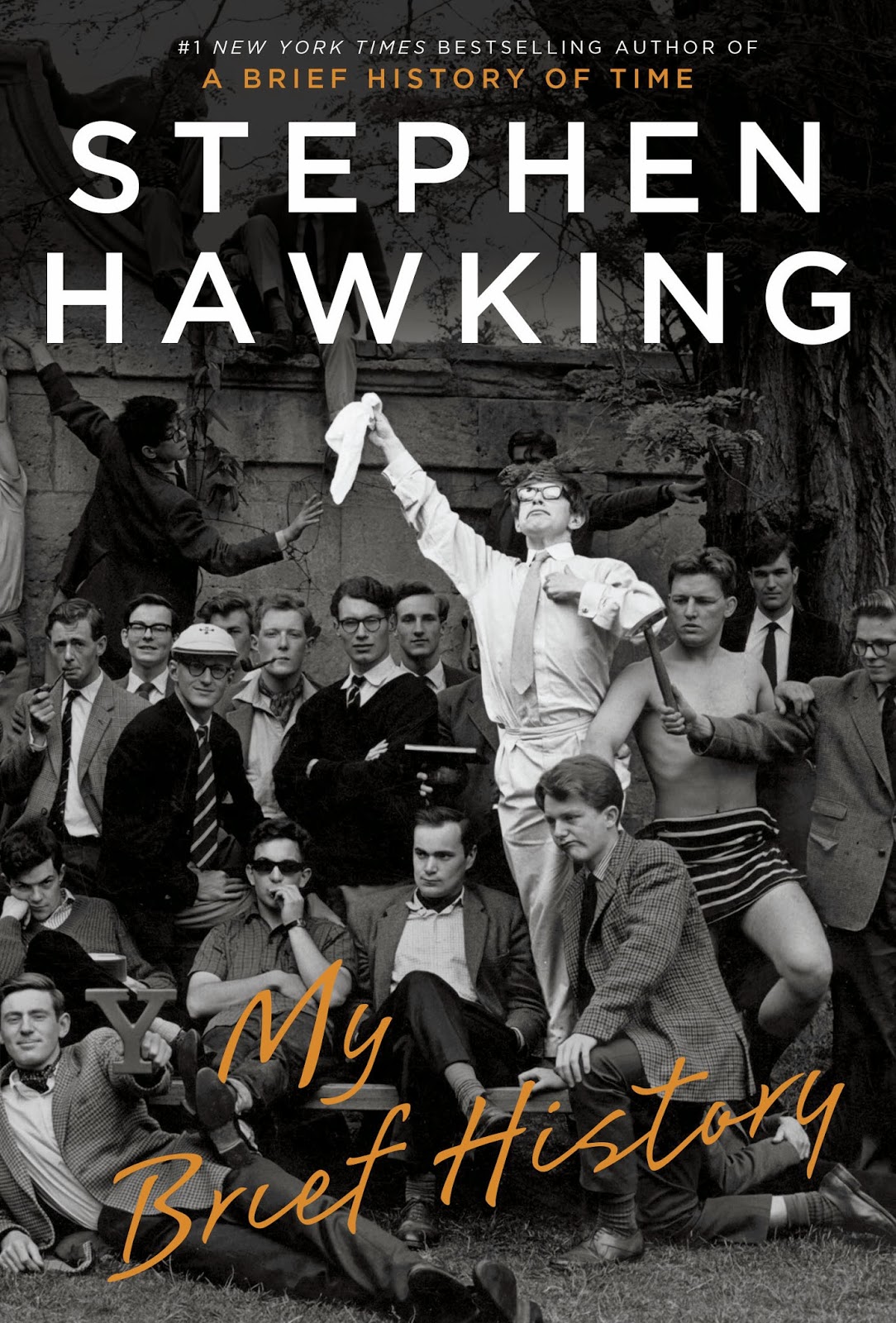Becoming acquainted with the mind of a genius is a
fascinating experience. The life stories of people that dazzled the world with
their achievements always make for inspiring reads—especially if you get them
straight from the horse’s mouth. Having given A Brief History of Time to the world and describing The Universe in a Nutshell, the world’s
best known cosmologist, Stephen Hawking, now describes his own self in My Brief History—right from the time of
his birth to the present moment.
Aside from the fact that it was Hawking who took the bold
step of trying to take the universe to the masses—letting common people have a
glimpse into how the universe operates—what is most well known about him are
his wheel-chair-bound, speech-synthesizer-operating persona and the
motor-neurone disease that led to it. What this book further reveals about the
“most brilliant theoretical physicist since Einstein” is his sparkling sense of
humour and the surprisingly heartwarming tendency to take everything
positively; to see that single light ray in the darkest of situations.
The book is a rather slim one with 13 chapters that talk as
much about his personal life as the work that has driven him. With parents that
were both educated at Oxford despite coming from families that were not well
off, Hawking talks with great candour and wit about the fact that he was born “
exactly three hundred years after the death of Galileo,” but that there would
be about two hundred thousand other babies born on that day and “I don’t know
if any of them were later interested in astronomy.”
 Describing his childhood through early memories, Hawking
speaks of his fascination with trains and his great desire to get an electric
train, and inventing a “series of very complicated games” during his teens—a manufacturing
game complete with factories, roads and railways and even a stock market; a war
game and even a feudal game in which each player was a whole dynasty! The
following sentence sums up the direction his mind was taking from the beginning
–“I think these games…came from an urge to know how systems worked and how to
control them….this need has been met by my research into cosmology. If you
understand how the universe operates, you control it, in a way.”
Describing his childhood through early memories, Hawking
speaks of his fascination with trains and his great desire to get an electric
train, and inventing a “series of very complicated games” during his teens—a manufacturing
game complete with factories, roads and railways and even a stock market; a war
game and even a feudal game in which each player was a whole dynasty! The
following sentence sums up the direction his mind was taking from the beginning
–“I think these games…came from an urge to know how systems worked and how to
control them….this need has been met by my research into cosmology. If you
understand how the universe operates, you control it, in a way.”
From his days at Oxford and Cambridge, to his theories about
the Universe and his work on black holes and time travel, everything is
narrated with a touch of humour and every chapter ends with an anecdote to make
you smile. Though you have to get through the concepts of theoretical physics
to be able to get the joke, the effort is entirely worth it!
If you’ve already gone through his previous works you might
not need so much concentration and focus in the chapters that speak of his work
as a scientist, but even if you haven’t, this book will make you want to
explore the universe even more.
Sprinkled all over the book are such candid offhand
statements as “My practical abilities never matched up to my theoretical
inquiries.” Or “It was lucky I didn’t become a civil servant. I wouldn’t have
managed with my disability,” revealing a disarming air that charms its way into
your heart. Particularly when he talks about how his disability has been an
“asset”: “I haven’t had to lecture or teach undergraduates, and I haven’t had
to sit o tedious and time-consuming committees. So I have been able to devote
myself completely to research.”
The last few passages talk of the “full and satisfying” life
he has led, with the very sound advice: “Disabled people should concentrate on
things that heir handicap doesn’t prevent them from doing and not regret those
they can’t do.” The advice holds true for every one of us sitting out here with
some “disability” in life—not necessarily physical, though.
This book just needs to be read to believe how far the human
spirit outweighs the body that holds it.

No comments:
Post a Comment